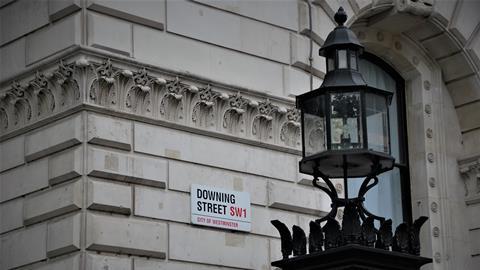Sixty-seven days after Keir Starmer’s Labour party swept into power, union bosses are hailing a new dawn.
This morning, Starmer became the first prime minister to address the TUC congress since Gordon Brown in 2009. As he pointed out, that was so long ago Everton had made it through to an FA Cup final – albeit to be beaten 2-1 by Chelsea.
Whether the arrival of Arsenal fan Starmer will kick off a fresh era of worker power is – like so many things – is one of the big unknowns and talking points of the new government.
Union hopes have been raised by the promise of a new Employment Law Bill within the first 100 days, which takes us to 4 October. That’s set to include a raft of reforms, including repeal of the minimum service levels in relation to industrial action, as well as other restrictions on union power, plus a host of new workers’ rights. Measures on fair pay will include a new “genuine living wage”, while Labour has also laid out proposals to legally ban practices such as ‘fire and rehire’ and zero-hour contracts.
‘Fire and rehire’ is particularly pertinent given the Supreme Court will hand down its judgment on Tesco’s use of such practices on Thursday. The case will examine whether the supermarket was entitled to dismiss a number of warehouse operatives to remove a financial benefit described as a “permanent feature” of their contract.
Pro-business and pro-worker
Several business leaders are urging caution on Labour’s proposals to boost worker conditions. For example, UKHospitality CEO Kate Nicholls pointed to Office for National Statistics figures showing earnings have risen 4% on last year. She hailed it a sign that things were “moving too fast” – a line that is likely to become familiar in Starmer’s talks with business.
Yet the PM promises to avoid an anti-business approach. He is pledging genuine partnership with industry, claiming voters are fed up with the usual ‘them and us’ approach.
“When I say to them, our policies will be ‘pro-business and pro-worker’, they don’t look at me as if I’m deluded,” he told the congress. “No – they see it as the most ordinary, sensible thing in the world.
“I know there will always be disputes. Of course there will. But in all seriousness, there is a mood of change in the business world,” he added.
“A growing understanding of the importance of good work. And the shared self-interest that comes from treating the workforce with respect and dignity. The productivity gain of fairness.”
Women and the pay gap
Events in Manchester, rather than Brighton, might be a truer test of whether that spirit of partnership is just words. Unions came out in force in the northern city yesterday to mark the start of a court case on behalf of the mostly female Asda store employees claiming equal pay rights with warehouse workers.
It is the beginning of what could be a tidal wave to hit retailer staffing costs. Law firm Leigh Day, which is spearheading the Asda case, is also representing 30,000 shop staff at Tesco, Sainsbury’s and Asda, and a £1bn claim against Morrisons, based on similar grounds.
The law firm also went up against fashion retailer Next in a tribunal hearing in May. There, it was ruled the issue of sex could be the basis of court action – action Leigh Day claims could cost the employer more than £30m.
That’s peanuts compared to the £1bn-plus bill that could face Asda, according to Leigh Day’s analysis – and the bills of the other supermarkets that will have to follow suit.
GMB national officer Nadine Houghton told The Guardian Asda workers were “making history”.
“The result of this hearing will call time on the retailers undervaluing their predominantly women shop floor workers,” she said. “The entire retail sector has been built on the structural undervaluing of women’s work – but GMB members are changing this.”
There is a long way to go until that result becomes clear. The Manchester hearing will first decide if certain store-based roles are of equal value to certain depot roles at the company – something strongly disputed by Asda and other retailers. That alone is set to drag on well into 2025.
If any roles are found to be of equal value, proceedings will move to the “material factors defence stage”, which will consider whether there are justifiable reasons for the pay differences.
Given the costs at stake, it is questionable how much of a “partnership approach” we will see between the big retailers and the unions.
Meanwhile, Labour’s other workforce measures will test that relationship even further. Trade unions are chomping at the bit for Labour to roll back years of what they claim had been Tory abuses of workers’ rights.
GMB general secretary Gary Smith said: “We have seen some positive action from the new government, with above inflation pay awards already in place. But GMB’s public sector members are clear: this must be a start and not a finish.”
Unite, meanwhile, has just negotiated an inflation-busting 10.3% reward for Diageo workers, which it hopes will be a “benchmark” for the rest of the industry to follow.
Back in Brighton, meanwhile, Starmer warned the union audience that any decisions on pay must be shaped by “tough decisions” to protect the public finances.
It’s a factor that must be weighed up in negotiations over food prices, food security and calls for investment in the sector. And as with any tough decisions, a partnership approach might be ideal – but it will be hard to pull off in practice.




















No comments yet